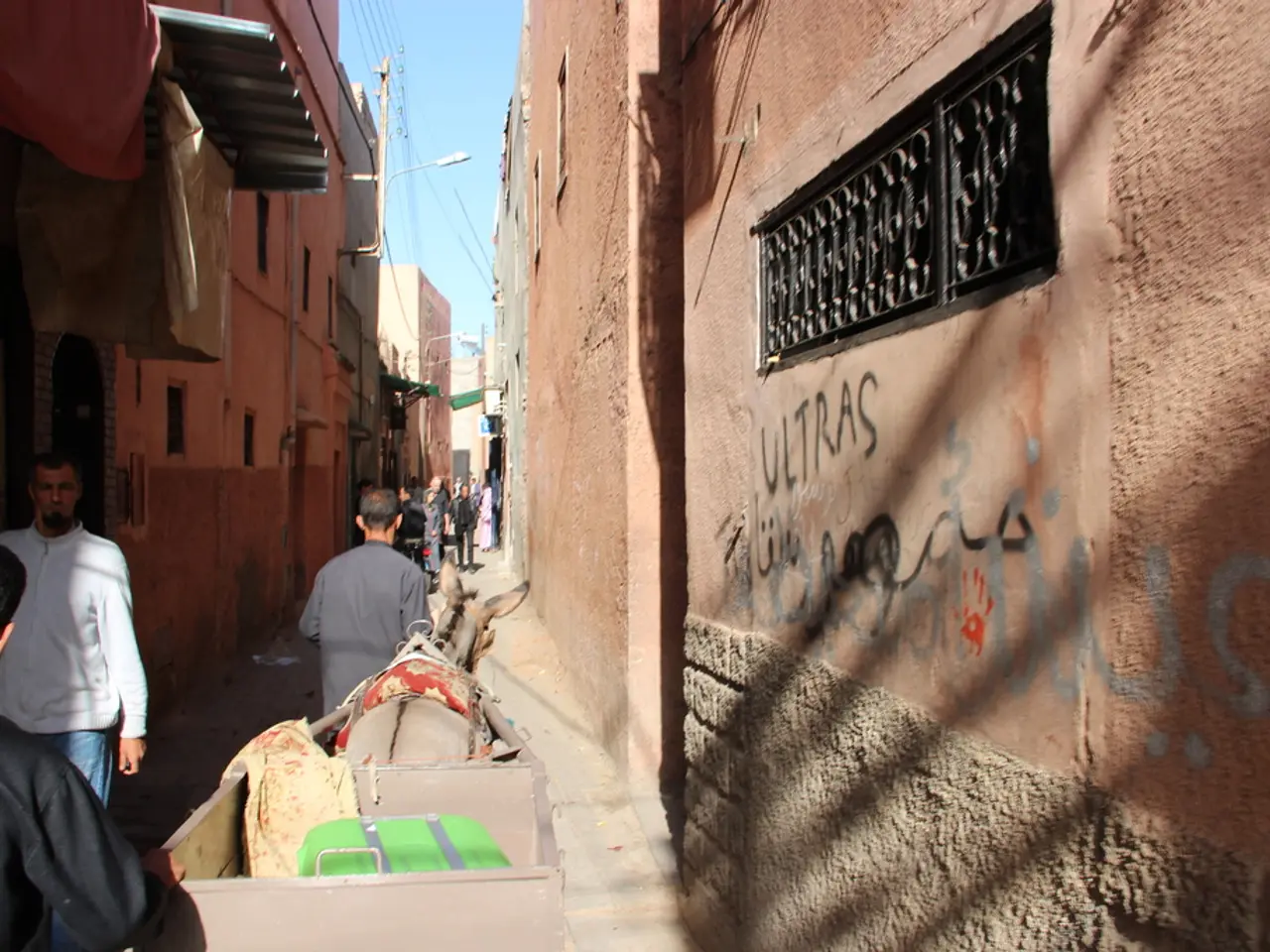International Organization issues alarming statement on worsening human condition in Gaza, calls for swift intervention
The Gaza Strip is currently experiencing an unprecedented humanitarian crisis, with the situation for women, children, and civilians at large becoming more perilous than ever. The crisis is marked by extensive destruction, a rising toll of casualties, and severe shortages of essentials such as food, medicine, and fuel.
Since the collapse of the ceasefire in mid-March 2025, Israeli military operations have intensified, resulting in tens of thousands of casualties, the destruction of critical infrastructure, and large-scale displacement. The ongoing violence, coupled with the collapse of ceasefires, has exacerbated the suffering of the millions trapped in the conflict zone.
As of July 2025, the Gaza Ministry of Health, as reported by OCHA, has documented at least 58,573 Palestinians killed and 139,607 injured since October 7, 2023. Hundreds have been killed or injured while trying to access food supplies in recent months. Over 1.9 million Palestinians are displaced, and almost the entire population faces crisis-level shortages of water, food, and healthcare, with hospitals overwhelmed and some closing due to lack of fuel.
The causes of the crisis can be traced back to October 2023, when Hamas and other armed groups launched a ground incursion and rocket attacks on southern Israel. In response, Israel initiated large-scale airstrikes and ground operations in Gaza, leading to destruction and heavy civilian casualties. The continuation of the blockade and siege since May 2025 has severely restricted the flow of essential goods and humanitarian aid into Gaza.
The United Nations, including UNRWA, OCHA, UNFPA, and other agencies, continue to call for a ceasefire to enable effective aid delivery, protection of civilians, and humanitarian access. UN agencies report that aid operations are under severe strain due to security risks, crossing delays, and restrictions imposed by Israeli authorities. Over 100 relief organizations warn of spreading mass starvation and worsening malnutrition, urging all parties to adhere to international humanitarian law and facilitate the delivery of aid.
UNRWA has lost 330 staff members in the occupation's assault on Gaza. Since July 9, a total fuel blockade has been in place, and only a limited number of fuel trucks have been allowed to enter via the Kerem Shalom crossing. The lack of fuel has severely impacted life-saving essential services in Gaza.
Khaled Khiari, UN Assistant Secretary-General, spoke about the situation during a Security Council open debate on the Middle East. He emphasized that there will be no lasting solution to the crisis without a political horizon to resolve the conflict and end the occupation. Khiari called on all member states, including Council members, to take all possible steps to end the conflict in Gaza.
The upcoming ministerial meeting to support a two-state solution, jointly hosted by France and Saudi Arabia, is a critical moment to show support for the Palestinian Authority. Intense Israeli military operations in Deir Al Balah have displaced Palestinians and hindered humanitarian operations. Khiari stressed the need for urgent measures to reverse the troubling trajectory in the occupied Palestinian territory, including East Jerusalem.
[1] United Nations Office for the Coordination of Humanitarian Affairs (OCHA) [2] United Nations Relief and Works Agency for Palestine Refugees in the Near East (UNRWA) [3] United Nations Population Fund (UNFPA) [4] Office for the Coordination of Humanitarian Affairs (OCHA) - Humanitarian Response Plan for Gaza 2025
In the midst of the ongoing humanitarian crisis in Gaza, it's essential to focus on aspects of health and wellness, including mental health and nutrition, to prevent further deterioration. The scarcity of resources has led to a lack of healthcare services, proper nutrition, and mental support for millions of Palestinians living in the conflict zone. To alleviate this, fitness and exercise may also provide physical and mental relief, but the lack of fuel for essential services significantly hinders such pursuits.




